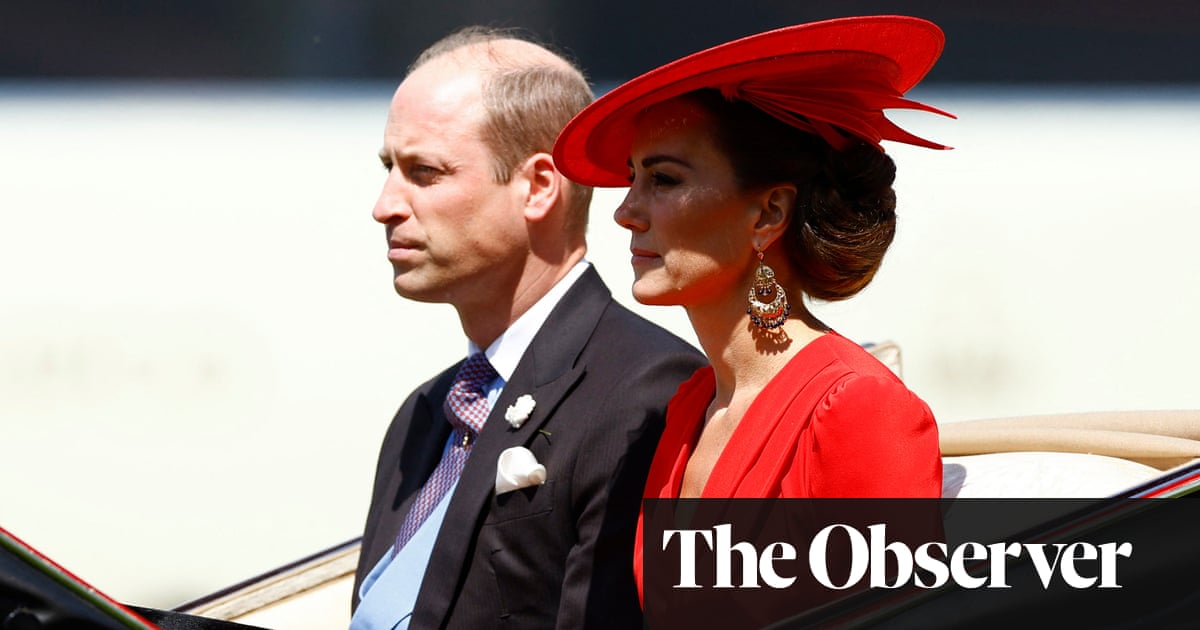
Prince William faces a struggle to reinvent the monarchy as a progressive force, royal experts have warned, after he made it clear there would be a change of strategy following his controversial trip to the Caribbean.
The future king has said he intends to break with tradition in his reign and become a “unifying force”, with a slimmed-down royal household and a more “reactionary and agile” approach to communications that would depart from the “never complain, never explain” policy adopted by his predecessors, according to reports in the Daily Mail.
But royal experts said it had been several decades since “never explain, never complain” was palace policy, and the prince would have to do more to keep the monarchy relevant for younger generations.
William’s comments came after the Duke and Duchess of Cambridge’s tour of the Caribbean, in which they encountered the strength of republican sentiment in Jamaica and the Bahamas, where the Queen remains head of state, and took part in photo opportunities that have been criticised as throwbacks to colonialism.
One source quoted in the Mail said that William had privately expressed concern about how the Land Rover moment would be received several weeks before the tour.
William issued a statement after the trip – understood to have not been discussed with the Queen and Prince Charles first – in which he said the visit “had brought into even sharper focus questions about the past and the future”.
One former palace public relations source said this was unsurprising as William was more flexible over his future role as king than many understood. “There’s a feeling in the institution that over time the monarchy can update itself and change, but it has to be gradual, subtle and carefully thought through,” he said.
It was a particularly thorny issue at the moment, he said, as the role of the monarchy was to act as a “unifying presence” outside party politics, focusing on important social issues everyone could agree on, which is difficult in an “increasingly disunited society”. One of these issues was likely to include how to improve the diversity of palace staff, especially in senior positions, to ensure it better reflects the national make-up.
Philip Murphy, a professor at the University of London and former director of the Institute of Commonwealth Studies, said William’s comments reflect how the palace is “involved in a constant learning process” that balances tradition with public opinion. “Sometimes it has to ditch the standard way of doing things and reinvent the process, and that’s what we’re seeing here.”
Murphy thought the problems in the Caribbean had likely arisen because the region was a “constitutional grey zone”. William had to juggle the expectation that, as someone in line to be head of state, he would “acknowledge the very deep sense of grievance” with an understanding that it would be “constitutionally improper” to broach matters for the UK government such as “the sensitive issues of colonialism or slavery”.
However, he suggested that William could have been “more flexible and imaginative” in Jamaica. “I think the British government in particular have got to rethink the whole nature of royal tours,” Murphy said. “They create a disconnect between some of the coverage in the rightwing tabloids in Britain and the way these issues are covered and commented on in the international media and in Commonwealth countries themselves.”
William is understood to have also raised questions about whether it would be appropriate for him to be head of the Commonwealth, since the role is not hereditary. In 2018, Commonwealth leaders formally announced that Charles would become the next head after the Queen.
Mark Borkowski, a PR agent who is a longstanding observer of the royal family, suggested William might also overhaul the honours system to strip its connection with the legacy of empire.
The focus on his vision raises questions over whether Charles’s reign would be “some interim organisation until William takes over”, he said. “That’s where real change will happen, because we’ve got generations of young Britons who don’t have any empathy with the boomer vision of the world.”
Borkowski believes William is thinking imaginatively about his future reign in a changing society, much as his grandmother did when she became Queen as a young woman and developed an image of “what post-empire Britain looked like”.
“We’ve had a long serving monarch with a throwback to the last days of empire. Her son and grandson are so far away from that,” he said.












